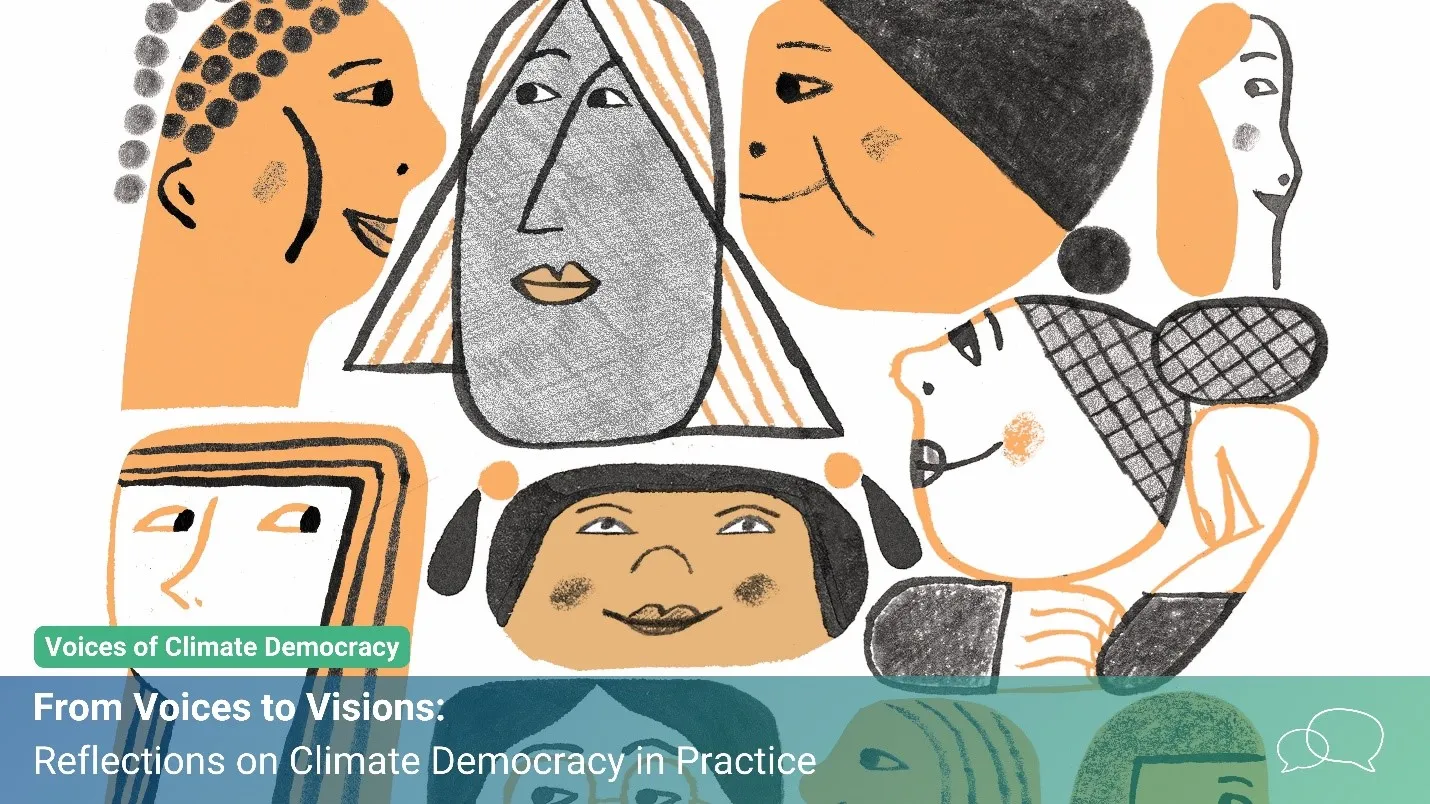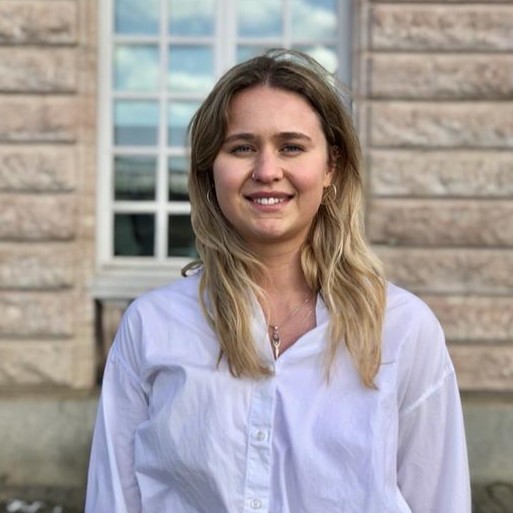From Voices to Visions: Reflections on Climate Democracy in Practice

Disclaimer: Opinions expressed in this commentary are those of the authors and do not necessarily represent the institutional position of International IDEA, its Board of Advisers or its Council of Member States.
When we launched the blog mini-series “Voices of Climate Democracy”, our goal was to spotlight diverse experiences of deliberation and participation that respond meaningfully to the climate crisis. We were interested in practices that create space for voices and experiences that are often left out of traditional decision-making arenas.
This aligns with International IDEA’s 2025 theme: “Democracy for All”, which promotes the political representation and democratic rights of historically excluded groups. The campaign emphasizes inclusive engagement with women, LGBTQI+ people, youth, Indigenous Peoples, migrants, displaced persons, persons with disabilities, and communities marginalized by ethnicity or class—especially across the Global South. The Voices of Climate Democracy series is one contribution to this effort. By drawing on diverse and grounded perspectives, we hope to broaden what is imagined, and what is practiced, when it comes to inclusive climate governance.
With this concluding blog post, we take a step back and look at the practitioners’ diverse experiences with climate democracy and reflect on the shared insights.
As Muzna Al-Masri and Mariam Daher described, the first citizens’ assembly on climate topics in Lebanon became a learning journey for everyone involved. Together with stakeholders and citizens, Muzna Al-Masri and Mariam Daher explored both practical questions, and more broadly, how to introduce citizen participation into the regional and political context of a largely non-democratic system. They discovered that beyond reaching decisions or coming up with recommendations for policymakers, it may be equally important for a citizens’ assembly to open a space for participatory imagination.
Aluna Serrano shared with us the challenges of organizing citizen deliberation on environmental and climate topics in a local context where many issues are perceived as far more pressing. Her experiences with deliberative theatre in Buenaventura, Colombia, showed that when participatory processes are designed around the lived experience of participants, and when facilitators remain open to adapting both topics and methods, people engage more deeply, enjoy the process, and truly make it their own.
Zooming out from local deliberative experiences, Claire Mellier shared her vision for a permanent global citizens’ assembly, departing from a theory of change where deliberation is more than just a technocratic fix. Rather, it can be used as a tool to disrupt and reconfigure power and radically include voices that are usually excluded from decision-making. Claire Mellier painted a vivid picture for us, outlining what a global citizens’ assembly might look like on the global climate governance stage when coupled with the UNFCCC COP process, starting with COP30 in November 2025.
Finally, the conversation with Kira Alberts gave us insight into the planning of South Africa’s first climate assembly. She emphasized the importance of tailoring the process to the local contexts, in particular when much of the theoretical ideas of citizen assemblies originate from the Global North. Despite the many organizational challenges, including around sortition-based selection of participants, translation, and how to achieve policy impact, Kira Alberts expressed a strong belief in the potential of deliberative practices in South Africa, as well as the broader African context. Climate assemblies is a vital tool to revitalize participation—because, as she puts it, “democracy needs to continue to grow, adapt and innovate”.
Muzna and Mariam, Aluna, Claire, and Kira all have one thing in common. These five committed women are not only thinking theoretically about how deliberative processes could strengthen democratic systems and improve responses to the climate crisis—but they actually do it. Through our conversations, we heard first-hand testimonies on how valuable these practical experiences are, and how important it is to acknowledge all facets, successes and failures, strengths and weaknesses. This includes struggles for funding and the demands of donors, administrative hurdles, the need for well-functioning on-the-ground communication, adapting to changing political contexts and the (dis)interest of stakeholders.
In short: funding, planning, co-designing and convening deliberative processes is no easy task. But hearing from practitioners from around the globe, we start to realize why it still is worth it. Direct feedback from participants shows that people experience empowerment, get to exchange perspectives, have real conversations and find agreement across socio-economic and ethno-religious borders, and even across continents. These processes create spaces for sharing and jointly developing new visions for the future, be it for energy supply in Beirut, clean water access in a Colombian port-town, how to better involve local people in political decisions in Cape Town, or addressing climate crisis challenges on a global level. Hearing about the impact of these experiences, it became clear that the added value of deliberative practices often lies in unexpected places. Even without producing formal policy recommendations, a deliberative process can be deeply meaningful to the people involved.
Key is adaptation to the local context, which came up in all our conversations. This includes not only thinking about the most appropriate translation of the term ‘citizens’ assembly’, or how to contact randomly selected participants without a reliable postal service, but also constantly questioning what creates added value for participants. To create a space that is truly inclusive was a driving motivation for all practitioners.
At the same time, the focus on co-design implies that we cannot just apply theoretically grounded ideas of deliberative democracy that in the Global North often are seen as the gold standard. It means we must recognize that there are different forms of knowledge and expertise that can improve the process. In our interviews, we have seen that in addition to environmental issues, street violence can be discussed in a climate assembly; participants can be selected through creative methods when standard sortition is not feasible; and instead of providing policymakers with concrete ideas on the fair use of energy, new visions can be developed in a knowledge-sharing process.
Here, one observation becomes particularly clear: The diversity of deliberative approaches is a strength. Not all processes we have learned about may fall under the narrower term ‘climate assembly’—and precisely this exchange across different experiences and practices can enable better future practices and provide the opportunity to reflect on their potential across different political contexts and levels.
Ultimately, we can and must rethink how we approach climate assemblies—including in the Global North, where they are already more mainstream. Faced with challenges such as insufficient implementation of recommendations or achieving representative sortition, we must look beyond policy outcomes and current practices. We must explore new formats that focus on participants’ enjoyment, creativity and mutual learning, where citizens and experts learn from each other. This way, we can create deliberative processes that are not only intended to support existing political systems but can deliberately develop a disruptive force in order to find new answers to the climate crisis.
Disclaimer: Opinions expressed in this commentary are those of the authors and do not necessarily represent the institutional position of International IDEA, its Board of Advisers or its Council of Member States.




